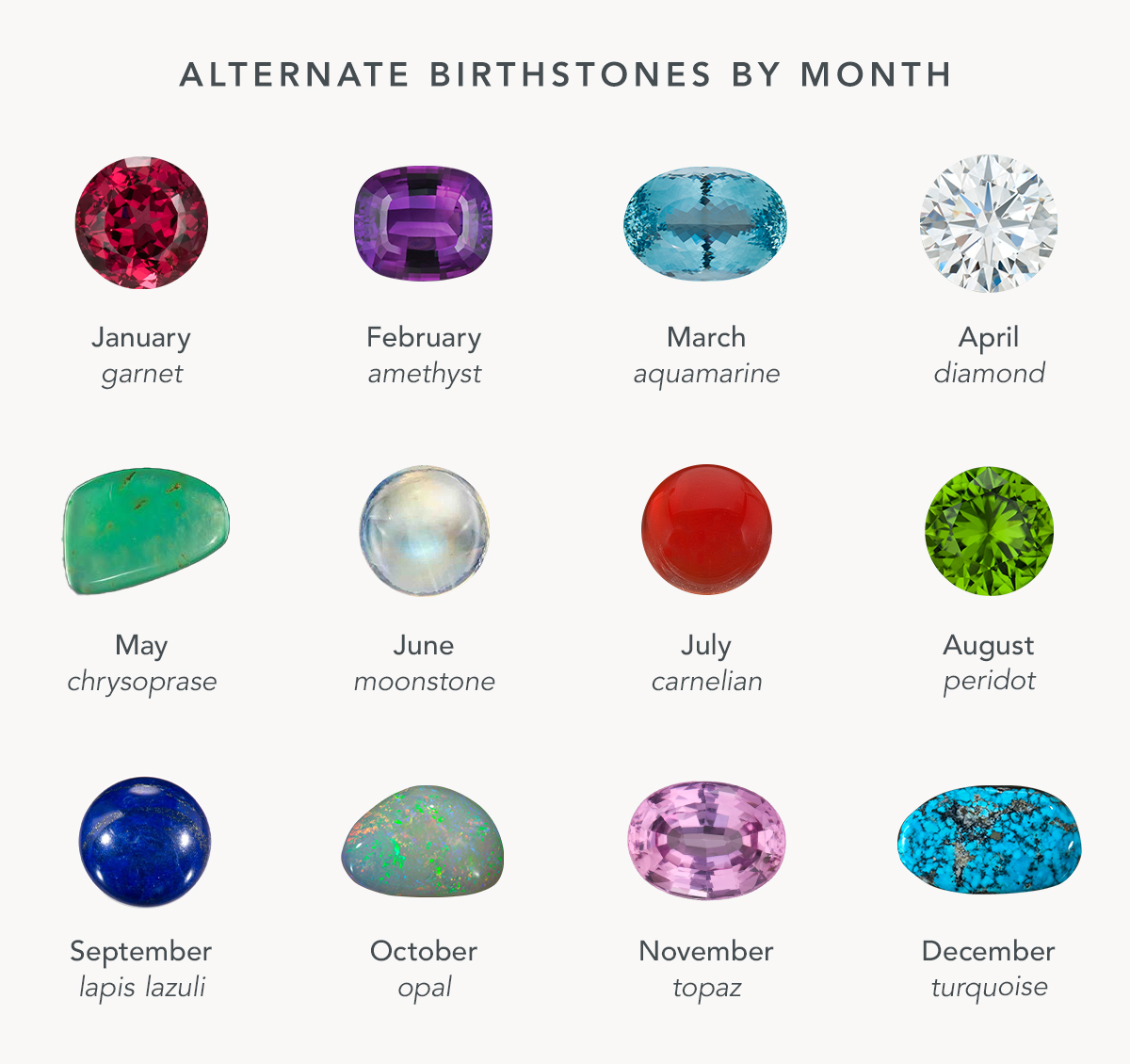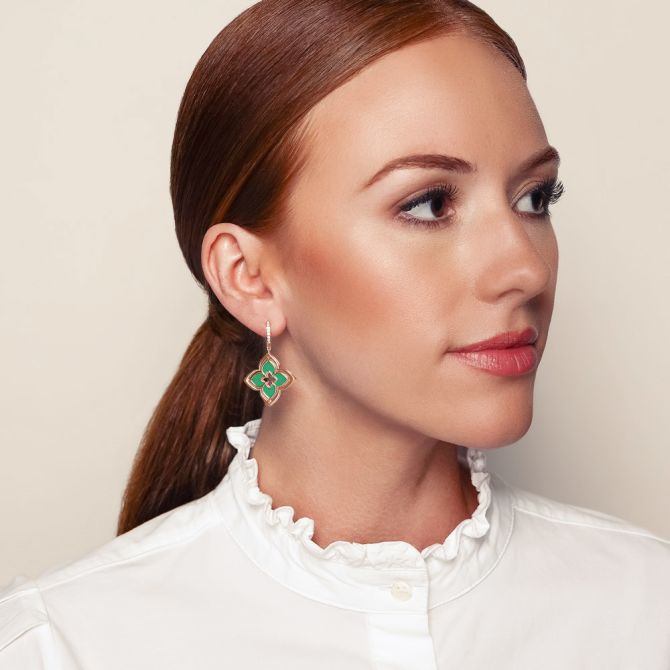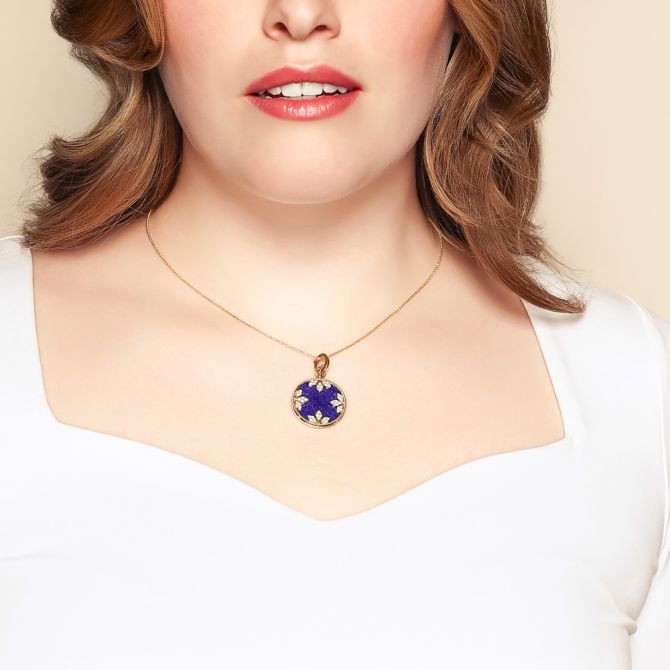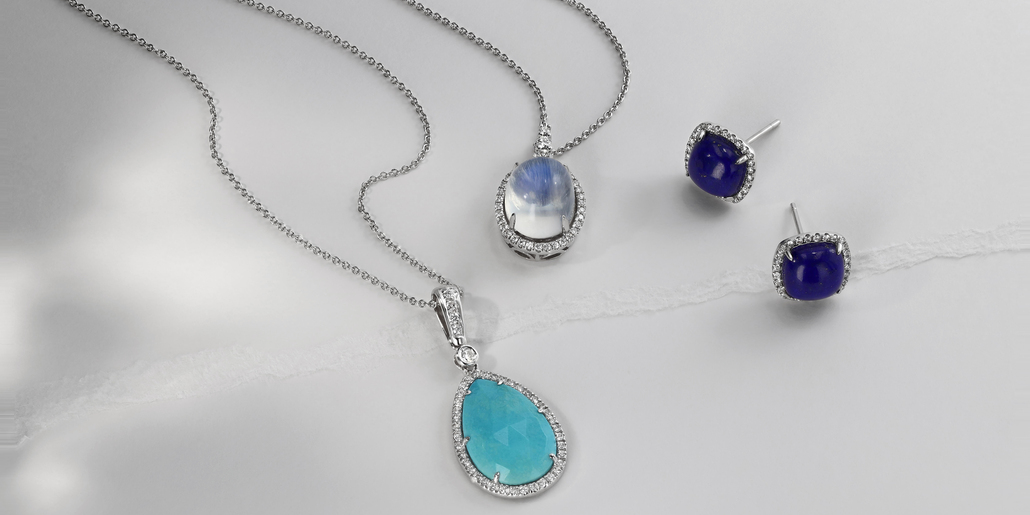While many are familiar with the standard birthstones that correspond to their birth month, there are also alternate stones that hold their own significance. Continue reading to discover six alternative birthstones to celebrate your birth month.

May Birthstone Alternative
Chrysoprase is the alternate birthstone for May, a seamless swap for emerald. Its apple-green glow results from nickel silicates, unlike many green stones (like emeralds or peridots) which derive their color from chromium or iron. Australia is currently the largest and most prolific source of chrysoprase in the world.

June Birthstone Alternative
Moonstone is the alternate birthstone for June. June’s traditional birthstones are pearl and alexandrite, but moonstone is a dreamy, mystical substitute. It shimmers with an otherworldly glow, capturing the mystery of moonlight frozen in stone. Moonstone’s hallmark is its soft, ghostly sheen—a result of light diffraction between interlayered feldspar minerals. This phenomenon, called adularescence, is named after Mount Adular in Switzerland, a historic mining site.

July Birthstone Alternative
Carnelian, the alternate birthstone for July, is the sunset in stone form. It forms in volcanic and metamorphic rocks, with its fiery tones attributed to iron oxides. The intensity of its color can vary from pale orange to rich rust-red, depending on iron concentration and exposure to heat—both natural and human-induced (heat-treating is often used to deepen its saturation).
September Birthstone Alternative
If sapphire isn’t the stone you seek, consider lapis lazuli, the alternate birthstone for September. Lapis lazuli is a metamorphic rock composed of several minerals. Its blue color comes primarily from lazurite, while inclusions of pyrite give it a starry, celestial effect. The best specimens are intensely saturated blue with fine, uniform flecks of gold and minimal calcite veining. Historically, lapis lazuli was a sacred stone of royalty, famously used in King Tut’s burial mask. Believed to be a gateway to the divine, priests and scholars wore it to connect with the heavens. Ground lapis lazuli was also used to create the rare and prized pigment ultramarine, reserved for depicting the Virgin Mary and celestial elements in paintings.

November Birthstone Alternative
Topaz is recognized as an official birthstone for November, but citrine tends to be more commonly associated with the month, making topaz more of an alternate birthstone for November. Its name is derived from the ancient Greek word “topazos,” meaning “to seek.” Topaz comes in a spectrum of colors—many natural and others enhanced through heat or irradiation. Among its varieties, imperial topaz (golden-orange with pink undertones) stands out as one of the rarest and most valuable. Meanwhile, blue topaz is one of the most accessible types globally.

December Birthstone Alternative
Blue zircon, tanzanite and sometimes blue topaz represent December, but turquoise, with its blend of sky blue, sea green and earthy marbling, is a worthy option. Turquoise’s coloration arises from copper (which gives it its blue hue) and aluminum or iron (which can add a greenish tint). Highly prized Persian turquoise is an intense, robin’s egg blue with little to no veining, while American turquoise is marked by intricate matrix patterns that resemble spiderwebs.

Any of these birthstones need not be bound by calendar months. Browse our selection of gemstone jewelry online at Borsheims.com today.

